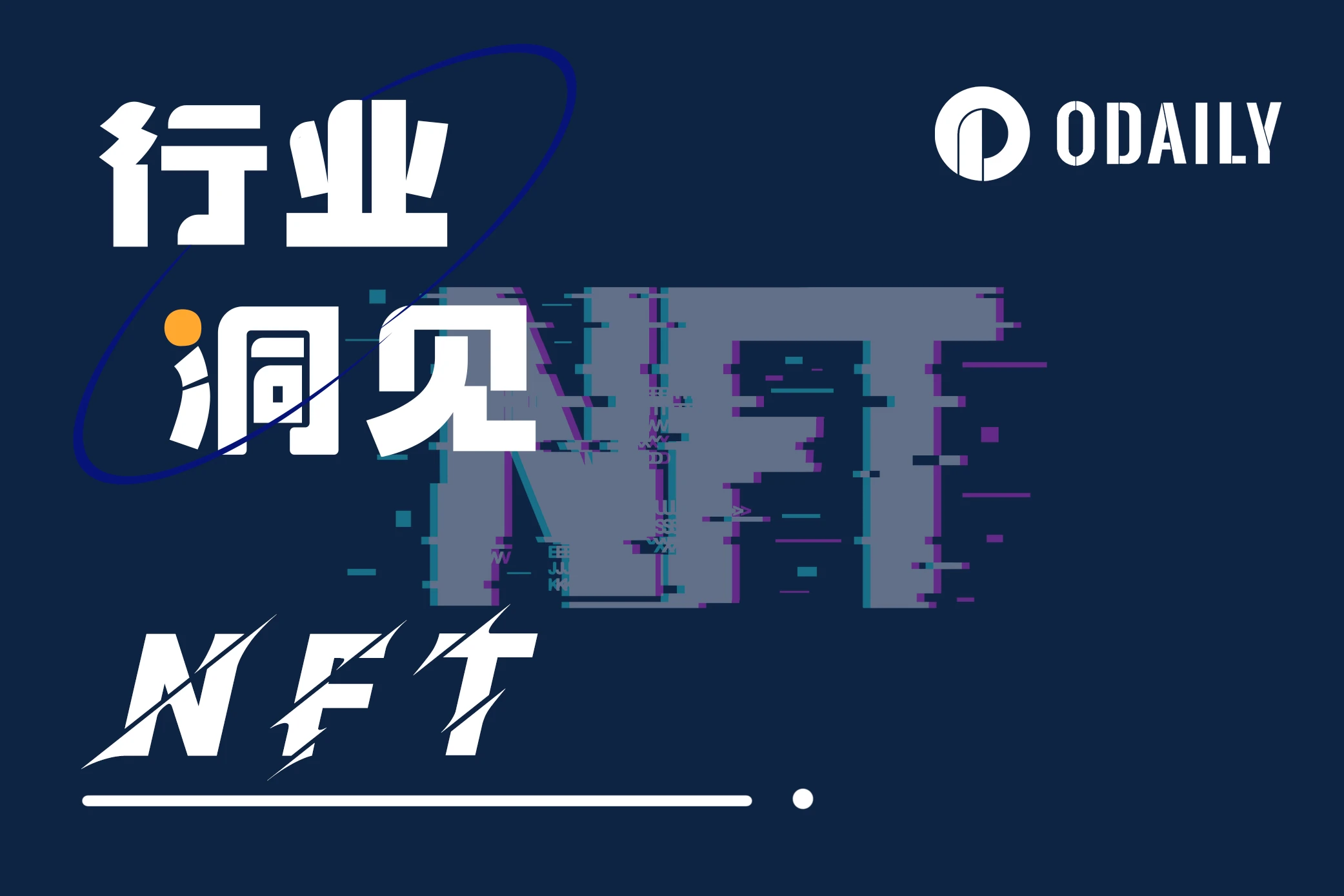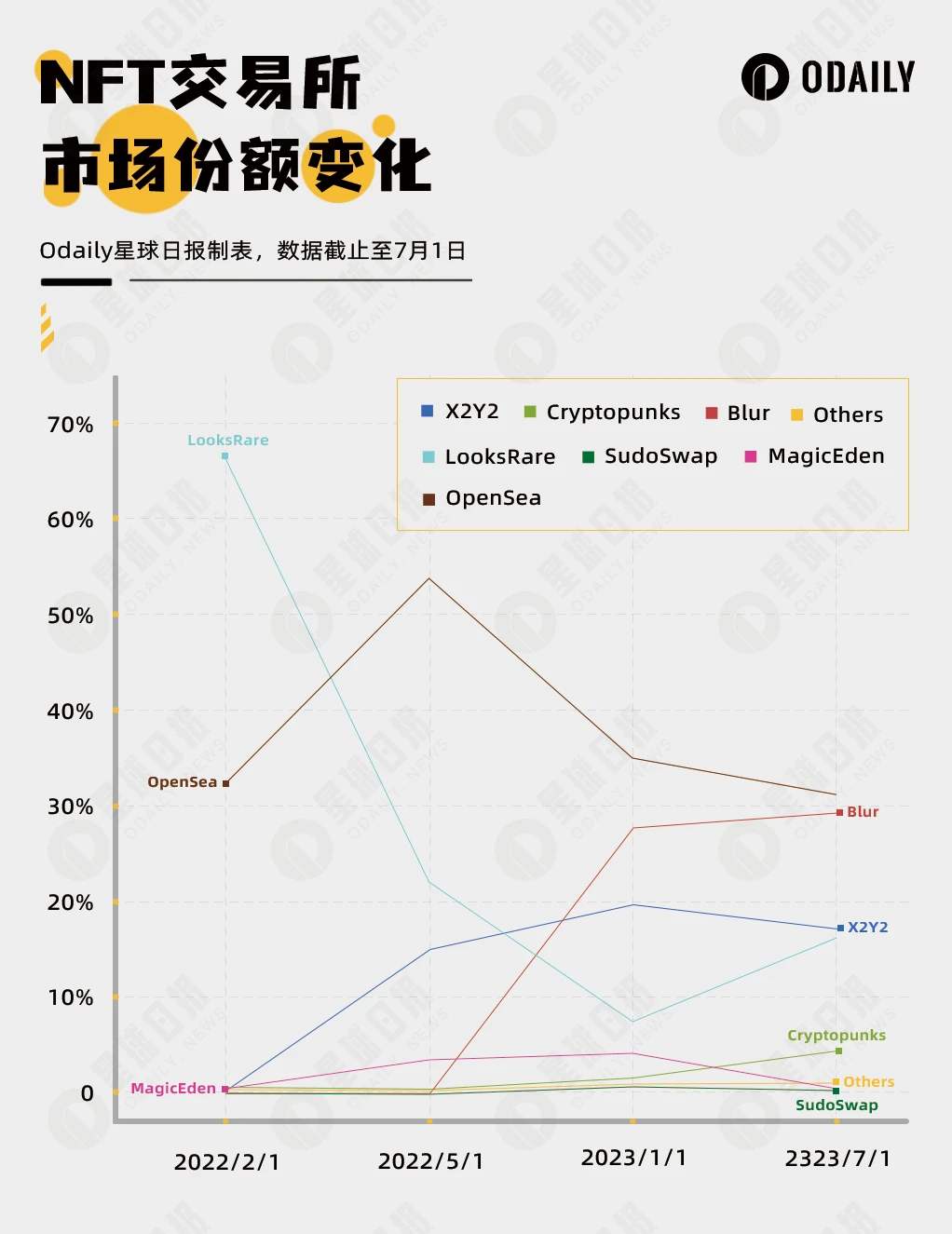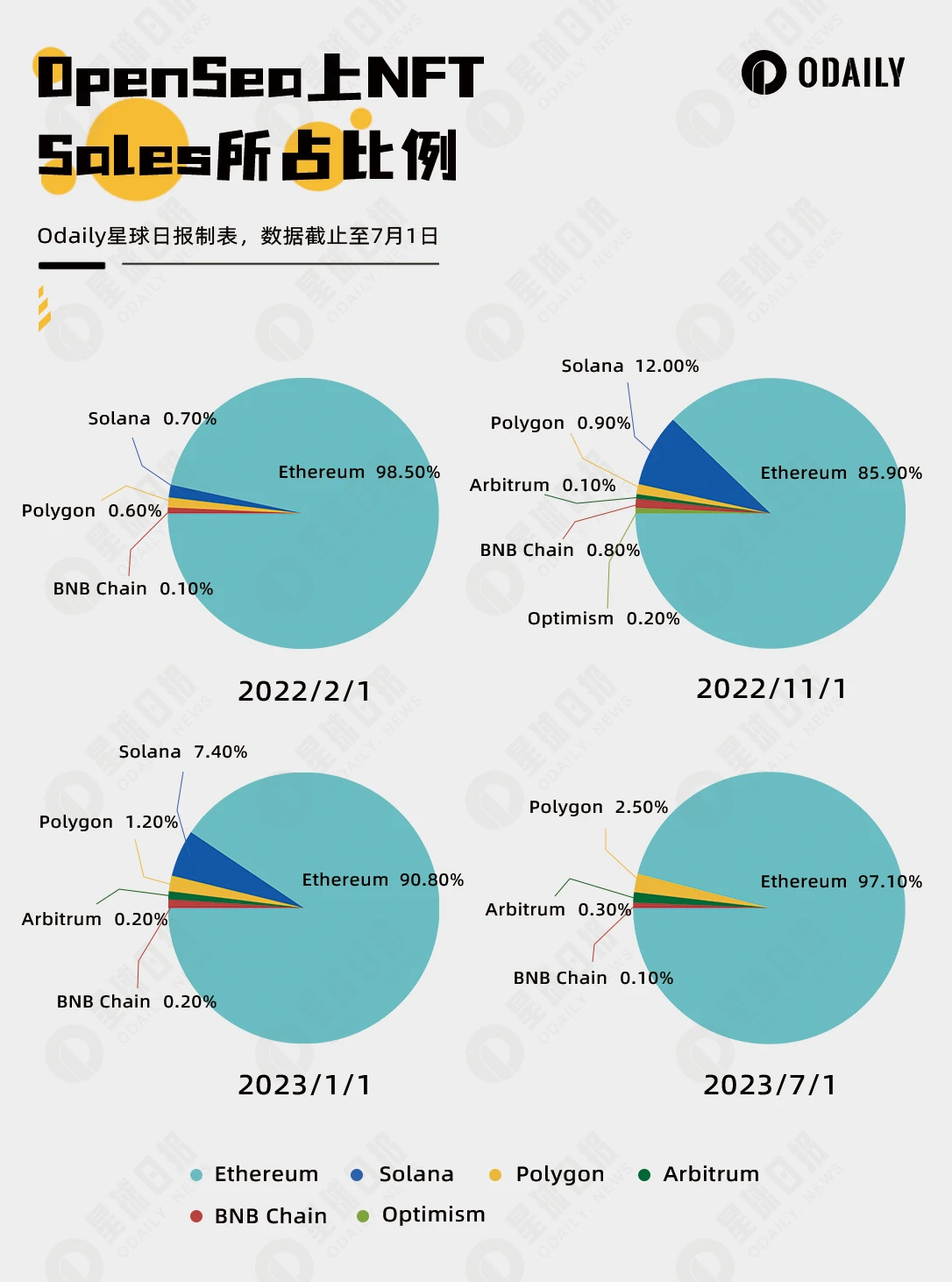Original | Odaily
Author | Jessica
Editor | Haofangzhou

On August 19th, weighing the pros and cons, OpenSea announced the cessation of support for BNB Chain due to the cost of support outweighing the returns.
This decision comes as OpenSea expands its support for L2 solutions such as Base and Zora, and some people are saying that BNB Chain is losing traction. However, it is not BNB Chain that is cooling down, but OpenSea, which relies on NFTs for its livelihood.
From a data perspective, the cryptocurrency market is currently in a deep bear market, and NFTs are experiencing a more widespread decline.
According to data from DappRadar, in August, NFT trading volume declined by 16% to $559 million, and the number of transactions decreased by 13% to 3.2 million.
Next, let's take a look at OpenSea's revenue situation, which mainly comes from a 2.5% transaction fee. In January 2022, it reached its peak with a monthly trading volume of $4.8 billion, generating $120 million in monthly gross profit for OpenSea. However, in February 2023, the monthly trading volume shrank to $657 million, and the gross profit dropped to $16.43 million per month. But in August 2023, the monthly trading volume was only $105 million, and the gross profit also decreased to $2.63 million per month.
With the significant decline in NFT trading volume, on top of that, OpenSea's market share is also decreasing.

Revenue and market share have fallen sharply, making it difficult to support more NFTs in the ecosystem. In addition, the decrease in market share of BNB Chain is also related to OpenSea.
From statistics from 2022 to July 2023, Ethereum accounted for almost all of the trading volume on Opensea, while BNB Chain only accounted for 0.8% at its peak in November 2022.

On August 18th, OpenSea announced changes to creator royalties, eliminating perpetual royalties and adding optional royalties of 2.5% - 10% on secondary sales. Some community users believe that this change undermines artists' ongoing income. Yuga Labs announced that, in light of OpenSea's announcement to discontinue mandatory royalties, they will implement an optional creator royalty plan for all NFT secondary sales after February 2024. Yuga Labs will gradually stop supporting all upgradable contracts and new series on OpenSea SeaPort, with the plan to complete alongside OpenSea in February 2024.
The removal of royalties also signifies OpenSea's challenges, as Blur is replacing it as the leader, causing OpenSea to strive to reduce licensing fees to maintain competitiveness.
On the other hand, OpenSea CEO Devin Finzer stated that this change is a step towards enhancing innovation and adaptability. Furthermore, he acknowledges the limitations of the previous model and encourages creators to explore alternative strategies. This perspective is committed to fostering diversified sources of revenue and creative possibilities.
Additionally, this move has stimulated the emergence of creator-centric platforms and ecosystems that establish their own markets to protect the rights of creators.
A typical example is Art Blocks, which is the foundation for generative NFT art. It launched its own secondary market as early as March this year. After OpenSea's announcement, Art Blocks has seen a surge in activity and interest in their platform.
OpenSea is one of the major NFT marketplaces. However, recently Art Blocks has announced that they are considering leaving OpenSea and creating their own marketplace. Art Blocks is a platform where artists can create generative NFT art. This decision may have an impact on OpenSea's revenue as a significant amount of trading volume for Art Blocks happens on OpenSea. In addition, OpenSea has decided to remove the royalty fee feature, which means they have lost another major NFT marketplace that supports and advocates for artists. This change may lead to a trend where more projects choose to create their own marketplace. Yuga Labs, another NFT project, has already announced their decision to exit OpenSea and it is possible that they will soon launch their own marketplace. These developments indicate that the NFT market is experiencing some subtle changes. There is a rise in "low-entry" NFTs that have smaller individual values but can attract a wider audience, potentially impacting the overall market indicators. Furthermore, OpenSea does not support BNB Chain, but BNB Chain remains a leading chain in terms of activity. In the past month, BNB Chain had 500,456 daily unique active addresses, accounting for a 24% market share. Among the active DApps on BNB Chain, the top three are TinyTap, LifeForm, and PancakeSwap. The first two are related to social activities, which indicates that social and gaming-related assets are growing in the NFT market. Additionally, BNB Chain has its own native NFT marketplace, such as Binance NFT Marketplace. Binance Labs has also strategically invested in NFTrade, Tabi (formerly TreasurLand), and Tofu, which at one point held the top spot in BNB Chain's NFT marketplaces. OpenSea is also considering supporting BNB Chain.It won't be good to ask for.There is also a small detail, Binance NFT will no longer support the Polygon network starting from September 26 and will focus on supporting BNB Chain, Ethereum, and Bitcoin.
This move will give native NFT exchanges in the Polygon ecosystem the opportunity.
Some people think that the fact that NFT is in the situation of "no longer supported" means that the NFT market is "dying". After all, the cryptocurrency market itself is very small. While the underlying technology is striving for interoperability, NFT creates barriers and difficulties for traders. However, some people have different opinions, indicating that the NFT market is gradually segmenting, as there is no need or significance for NFTs on different chains to be "cross-chain".










